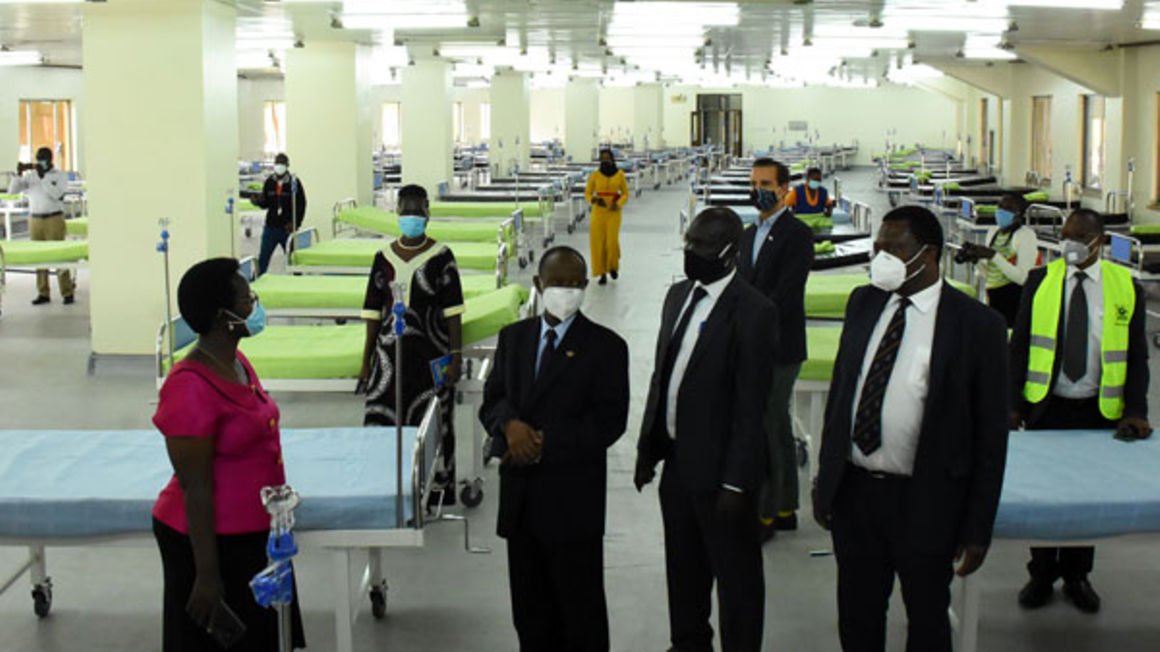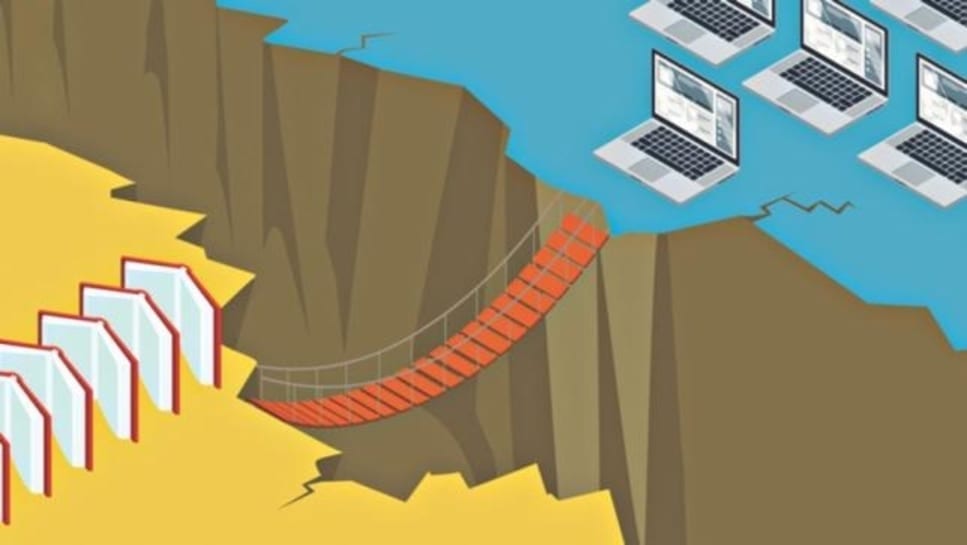A report released by the Bill and Melinda Gates Foundation on Monday has revealed that the coronavirus pandemic has drawn back world progress by 20 years.
The reports paint a bleak picture where the effects so far witnessed will most likely continue longer unless all nations collectively find solutions to address the impact.
The report is based on the assessment of progress made to achieve the Sustainable Development Goals adopted by all United Nations member states in 2015 as a universal call to action to end poverty and ensure all people enjoy peace and prosperity by 2030.
“In recent years, the world has improved on every single one. This year, on the vast majority, we’ve regressed. By nearly every indicator, the world has regressed. Because of Covid-19, extreme poverty has increased by seven per cent. Vaccine coverage, a good proxy measure for how health systems are functioning, is dropping to levels last seen in the 1990s, setting the world back about 25 years in 25 weeks,” the report states.
The report describes the pandemic as “mutually exacerbating catastrophes” where “a health crisis became an economic crisis, a food crisis, a housing crisis, a political crisis. Everything collided with everything else. In other words, we have been set back for about 25 years in about 25 weeks.”
The pandemic has dealt a blow to all facets of life from the economy, access to health services, clean water, equality, nutrition, education, politics and governance among others.
The report adds that economic damage birthed by the responses to the pandemic could push more people into poverty and increased inequalities, with women more affected than men.
During the budget reading, Finance minister Matia Kasaija said the economic growth stands at 3.1 per cent as opposed to the average 5.4 per cent in the last four years.
The country’s economic growth had been anticipated to be at 6 per cent this financial year.
According to the Performance of the Economy Report for the month of August released by the Ministry of Finance on September 15, the domestic collections by the Uganda Revenue Authority surpassed the anticipated target.
However, the cumulative collections for the period of July and August fell to Shs2581.32b compared to Shs2655.85b collected over the same period last year.
The report also indicates that Uganda’s exports to the East African countries grew by 8.3 per cent from $75.32m (about Shs278.62b) in July 2019 to $81.6m (about Shs301.8b) in July 2020. This is due to an increase in exports to South Sudan and Tanzania.
Over the same period, imports from the EAC increased by 35.7 per cent from $123.97m (Shs458.57b) to $168.18m (Shs622.11b).
Economist Ramathan Ggoobi yesterday explained that the Ugandan economy may not be as badly hit as earlier anticipated but the effects will be felt.
He said aggregate demand will remain low for about a year and many more jobs in the formal sector may be lost because of the low turnover of businesses.
On August 20, Daily Monitor reported that data from the Ministry of Gender Labour and Social Development indicated more than 2,700 workers had been laid off, made redundant or had their salaries reduced.
A survey by the Uganda Bureau of Statistics on the impact of Covid-19 on businesses indicates that 84.9 per cent of establishments in the manufacturing sector reported that support staff were the most affected in terms of job losses.
Mr Ggoobi opined that the informal sector may recover much faster because of the living conditions that are forcing Ugandans to defy the preventive measures against Covid-19 to resume business.
The pandemic also significantly disrupted the health sector. Many people with underlying health conditions have had trouble accessing medical care, with all focus shifted to handle the pandemic.
Dr Diana Atwine, the Ministry of Health Permanent Secretary, said the onset of the pandemic altered the implementation of the sector work plan, due to the diversion of both financial and human resource.
“We have been trying to mitigate staffing gaps by recruiting more staff. Some of the skilled staff [ICU personnel or acute care ] are dedicating more time to these patients and yet there are other patients who need care but because we don’t have enough workforce, we have been pooling the same resources, because of the workload,” Dr Atwine said.
She revealed that the lockdown affected the number of people accessing immunisation services.
“Some Ugandans even fear to go to a hospital because they think they will pick Covid-19 from there,” she added. The report indicates that effects are expected to be more adverse in developing countries especially when it comes to shielding the economy from the ripple effects of the pandemic.
“By contrast, there are inherent limits to what lower-income countries are able to do to backstop their economies, regardless of how effectively those economies have been managed. On average, the economies of sub-Saharan African countries grew faster than the rest of the world every single year between 2000 and 2015, but sub-Saharan Africa is still the lowest-income region in the world,” the report states.
It adds: “Most countries there can’t borrow the money they need to minimise the damage, and their central banks don’t have the range of options available to the European Central Bank and the U.S. Federal Reserve.”
According to the report, a collective effort is a must if the world is to find solutions and pick up the pace to recovery.
“There is no such thing as a national solution to a global crisis. All countries must work together to end the pandemic and begin rebuilding economies. The longer it takes us to realise that, the longer it will take (and the more it will cost) to get back on our feet,” the report states.
Source: Daily Monitor
If Covid-19 has exposed the fault lines of inequalities around the world, chief among them is the gaping digital divide between the developed world and the Global South. The pandemic has been particularly unkind to developing countries in Africa and elsewhere, where stay-at-home restrictions in the absence of strong internet infrastructure have ended up causing a severe toll on livelihoods. Some developing countries that had imposed serious social distancing laws were forced to backtrack, in part because they lacked the digital connectivity to support teleworking and e-commerce.
Extending infrastructure
Less than 39% of Africans have internet access due to a combination of supply and demand-side constraints. A larger share of the population lives in rural areas that are expensive to connect using current cable or satellite technologies. As a result, fewer jobs can be done from home, while the scope for using virtual education during the period of lockdown becomes minimal.
A recent World Bank survey that tracks the effects of Covid-19 has revealed that only one-third of Nigeria’s primary and secondary school students were able to engage in any form of virtual education during the lockdown.
Among them, only 7% used mobile-based applications, compared to 20% that used radio and 17% that used TV programmes. The loss of human capital as a result of the interruption in schooling in the absence of virtual education will hence be severe in developing countries such as Nigeria.
At the same time, this connectivity gap represents a vast untapped growth potential for technology firms. Tech giants like Facebook and Google are searching for cost-effective ways to extend internet connectivity to rural areas through radical innovations, including the use of high-altitude, solar-powered weather balloons and drones for transmitting internet signals.
Facebook is making progress in its plan to install a 37,000km-long subsea cable around Africa in collaboration with local telecom service providers. Loon, a recent spin-off from Google, has fast-tracked its testing of weather balloons in response to the Covid-19 outbreak. On 7 July, it launched its first-ever commercial deployment of the technology by providing 4G LTE connectivity to tens of thousands of users in remote areas of Kenya.
No development without internet
Perhaps one of the major policy implications of Covid-19 is that universal connectivity is indispensable for economic resilience, and perhaps too important to be left to private businesses alone. It is, however, unclear how governments can help extend connectivity, an area that requires significant technological advances.
Capable emerging economies with sizeable rural populations could do well by investing in innovations that lower the cost or increase the reach of internet connections, either independently or through partnerships with technology firms. At the very minimum, they will have to simplify the regulatory burden for disruptive innovations that aim to extend connectivity, and defy the impulse to ban them in response to pressure from established telecom operators that stand to lose from these innovations.
More broadly, Covid-19 will perhaps bring salience to the view that internet connectivity is a basic human need or even a right, a view long advocated by Facebook co-founder and CEO Mark Zuckerberg. Development practitioners will also have to emphasise the public good aspects of internet connectivity and grant the desired kind of policy support for initiatives that seek to narrow the digital divide.
Improving payment services
Next to poor infrastructure, limited access to digital payment systems is perhaps the most binding constraint for e-commerce in the developing world. Cash is used in almost 90% of retail transactions in Africa, forcing digital businesses like Uber to resort to its use. Since digital transactions underpin all e-commerce ecosystems, their poor development will cripple entrepreneurship in all domains.
Less than 10% of the adult population has access to credit cards in most African countries. By comparison, more than 60% of adults in emerging economies like Brazil and China have access to credit cards. Many African countries, however, have a high usage of mobile money payment systems like M-Pesa, which do not require internet connectivity. IMF data shows that more than 60% of adults are active users of mobile money in countries like Botswana, Kenya, Namibia, Tanzania, Uganda, and Zambia.
Most successful digital payment services – such as WeChat Pay and Alipay in China, Apple Pay and Google Pay in the West – were developed by internet platforms. Platforms are well-positioned to launch successful digital payment services due to their network advantage, which offers a large pool of potential users who can be easily integrated within the existing platforms.
Facebook, for example, expects to launch Libra, a blockchain-based digital currency, by the end of this year, potentially extending the ability to make digital payments to its 3bn users, most of whom live in the developing world.
For developing countries, this creates the risk of over-dependence on quasi-monopolistic foreign firms for a privacy-sensitive service with the high public interest. But attempting to create domestic innovations in this high-tech field might not be feasible, and could continue enfeebling the e-commerce ecosystem. The best call for these countries seems to be to apply strong regulatory oversight and attract a handful of global payment services to improve competition.
India, for instance, has achieved a highly competitive payment system that now includes Google, Walmart and Facebook. Facebook’s new partnership with Reliance, an Indian telecom giant, is expected to upgrade WhatsApp into a payment platform, potentially extending payment to over 400m users. This service, called WhatsApp Pay, is soon expected to be introduced in Brazil and Indonesia.
The bottom line
Covid-19 has brought to the limelight the vast digital divide between the developed world and the Global South. As the developed world becomes even more interconnected with the rolling out of 5G networks, there is a risk that the developing world will be left farther behind.
Bridging the digital divide by improving infrastructure and facilitating digital payment will go a long way towards improving economic growth and resilience. It could hasten modernisation of the informal economy, and spur a gig economy that can offer income sources to millions of citizens. It will also make our world better prepared to cope with the next pandemic.
Addisu Lashitew is a David Rubenstein research fellow at the Global Development and Economy programme of the Brookings Institution. He can be reached at This email address is being protected from spambots. You need JavaScript enabled to view it.
Source: African Business
“The outbreak remains out of control”, Secretary-General António Guterres declared in his press conference ahead of the UN General Assembly (UNGA) High-Level Week, noting that soon one million lives will be “lost to the virus”.
Recognizing that many pin their hopes on a vaccine, he said, “let’s be clear: there is no panacea in a pandemic”.
“A vaccine alone cannot solve this crisis, certainly not in the near term”, stressed the world’s top diplomat. “We need to massively expand new and existing tools that can respond to new cases and provide vital treatment to suppress transmission and save lives, especially over the next 12 months”.
‘Global public good’
He emphasized that because the virus “respects no borders”, a vaccine must be seen as “a global public good”, affordable and available to all, but it requires “a quantum leap in funding”.
Moreover, people must be willing to be vaccinated, but a proliferation of misinformation on vaccines is fueling vaccine-hesitancy, and igniting wild conspiracy theories, noted the UN chief.
He spoke of “alarming reports” that large populations in various countries are reluctant, or outright refuse, to take a new coronavirus vaccine.
“In the face of this lethal disease, we must do our utmost to halt deadly misinformation”, affirmed the Secretary-General.
Renewed ceasefire call
Mr. Guterres called for a global ceasefire back in March, recognizing the coronavirus as “the number one global security threat in our world today”.
And next Tuesday he flagged that would renew the appeal at the beginning of the General Debate, for the international community “to mobilize all efforts for the global ceasefire to become a reality by the end of the year”.
The UN chief recapped that “hopeful new steps toward peace” have been taken, from Afghanistan to Sudan, and a slowdown in fighting in Syria, Libya, Ukraine and elsewhere, had created an opportunity for diplomacy.
In Yemen, “we are pressing for a ceasefire” he said, and even though “distrust is deep” across these and other crises, “we must persevere”.
“We must seize every opening in the weeks ahead and make a new collective push for peace”, upheld the Secretary-General.
A world in flames
The UN chief then turned to other global fragilities.
“Even before the pandemic, the world was far off course in efforts to achieve the Sustainable Development Goals (SDGs) and losing the battle against climate change”, he said.
Mr. Guterres recalled that the northern hemisphere was just coming out of the hottest summer on record and that greenhouse gas concentrations in 2020 had reached “new record highs”.
“The world is burning”, he told the journalists.
However, Mr. Guterres maintained that the post-pandemic phase offered an opportunity to “get on track and tame the flames”, but that “it must be green” – aligned with the SDGs and the Paris Climate Agreement.
Global solidarity
Effective multilateralism, gender equality and the voices of youth must also be part of recovery efforts.
He said that on Monday, Member States would adopt a declaration marking the UN’s 75th anniversary – committing to “a reinvigorated multilateralism”.
Global solidarity is required to transform the global economy, transition to zero-carbon, ensure universal health coverage, move towards a universal basic income, and shift to more open and inclusive decision-making, the UN chief maintained.
And it rejects “go-it-alone nationalist approaches and divisive populist appeals”, he asserted.
In this anniversary year, “we face our own 1945 moment”, the Secretary-General said, adding that it must be met with “solidarity and unity like never before” to overcome today’s emergency, get the world moving, working and prospering again while upholding the vision of the Charter.
Source: UN News
Kenya has donated a total of Ksh.300 million to the African Union COVID-19 Response Fund and the Africa Centres for Disease Control and Prevention (Africa CDC).
In a statement by Ababu Namwamba, the Chief Administrative Secretary (CAS) Ministry of Foreign Affairs the donation is part of a pledge by President Uhuru Kenyatta to help in combating the novel coronavirus in the continent.




